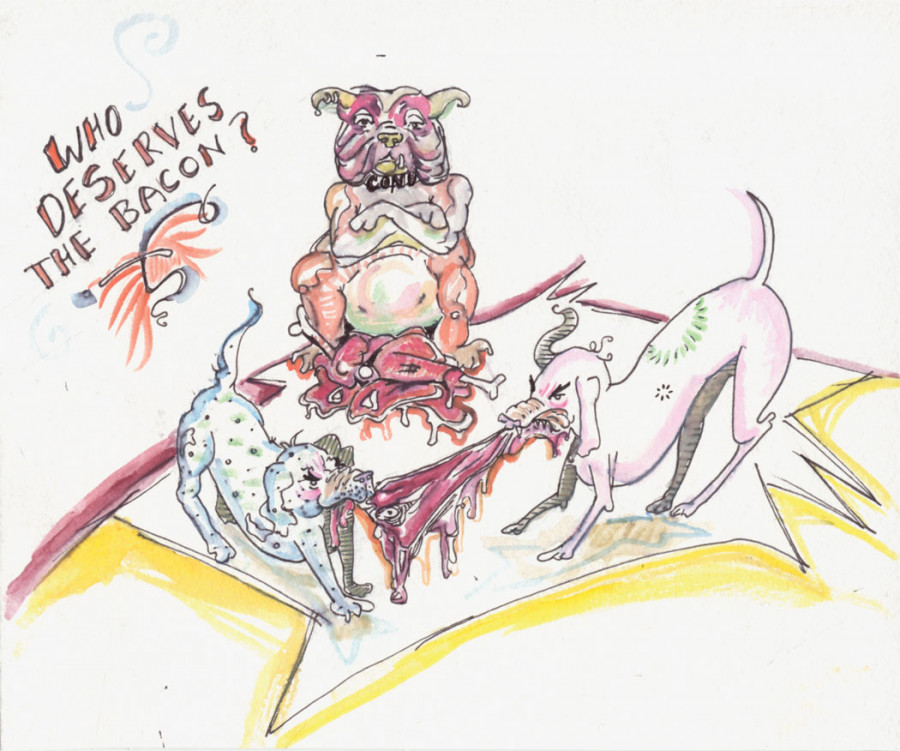Editorial: No Question, a TA is a TA
TRAC’s record is slowly straightening out. Led by a new executive team—featuring some familiar faces—the Teaching and Research Assistants of Concordia held its first general assembly of the year on Wednesday.
In addition, negotiations between the union and the university over new pay grades are set to resume this month, following reports in the summer that Concordia admin initially offered them more that 43 per cent in cuts to some positions.
However, the union has filed a formal grievance with the school about differing wage scales for Engineering and Computer Science TAs compared to TAs in other faculties.
The grievance was outright rejected. Arbitration begins in March 2016.
Why are there different wage scales for the four faculties and the School of Graduate Studies?
Currently, lab demonstrators in the Engineering and Computer Science faculty receive $18.53 per hour compared to the other three faculties and the School of Graduate
Studies that see their TAs collect $24.68 per hour. Have former executives and Concordia admin previously decided that Engineering and Computer Science TAs have easier jobs than, say, an Arts and Science TA? The Link has a difficult time believing that.
The job descriptions found on the previous collective agreement, between a Grade 1 lab demonstrator in the Arts and Science, Fine Arts, and John Molson School of
Business versus a “Grade 1” lab demonstrator in Engineering and Computer Science, are practically identical. In fact, it states that the latter have to “supervise and grade laboratory exams,” while the former three do not have to.
This differentiation between faculties, especially in regard to having one specific faculty valued differently than the others, seems unprecedented in recent collective agreements signed by other major Canadian universities.
The University of British Columbia, York University, University of Toronto and McGill University don’t differentiate pay by faculty, according to the collective agreements signed with their equivalent unions representing TAs. In other words, TAs of the same level at these universities are paid the same, regardless of which course they’re assisting with.
In contrast, Concordia’s Grade 2 Doctoral and Master’s TAs in “other faculties” are paid more than a Laboratory Demonstrator of any level from Engineering and Computer Science. So a PhD lab demonstrator working in the engineering faculty is paid approximately 80 cents less than a Master’s TA from another faculty.
TRAC executives say many TAs in the engineering faculty are international students, and by the time this grievance will end, many of them will return home from classes and will not receive their payments retroactively.
To be honest, The Link is dumbfounded as to why Engineering and Computer Science TAs have a different pay scale than other faculties. Unfortunately, it’s almost impossible to argue against the university’s logic because it is unknown why the past collective agreements were signed with these differences. Was it a strategic compromise former
TRAC bargaining officers made to appease the school? At this point, no one really knows.
Partial blame has to be laid on the past two TRAC executive teams that oversaw the bargaining of the last two collective agreements. A union is supposed to represent all its members equally and fairly. Why did they allow a binding document to be signed, which now gives the university precedent in future negotiations?
Engineering and Computer Science TAs deserve equal pay like any other TA. Regrettably, it may be an uphill battle for the current executive to secure, because of the lack of unification of their predecessors.




_600_375_90_s_c1.jpg)
_600_375_90_s_c1.jpg)
_600_375_90_s_c1.jpg)